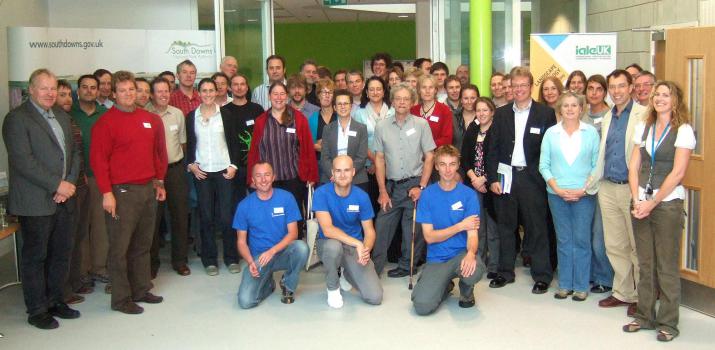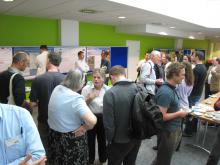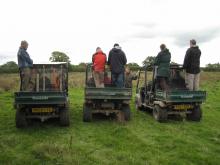
Future landscapes for biodiversity and people
The International Association for Landscape Ecology (UK) held its annual conference at the University of Brighton, 14-16 September. This year's focus was 'Future Landscape Ecology' with sessions on Species responses to landscapes; assessing vulnerability and resilience; future scenarios; problem-solving; workshop sessions; landscape-scale adaptation and management.
Landscape ecology is the study of interactions, across space and time, between the structure and function of physical, biological and cultural components of landscapes; marine, freshwater, and on land. The conference brought together scientists from the many fields in landscape ecology with policy makers, planners and practitioners interested in developing future landscapes that function for both biodiversity and people.
For details of how to order a copy of the comprehensive proceedings, published in book format, and to discover more about ialeUK visit: www.iale.org.uk
In a concluding presentation, Richard Smithers, ialeUK chair, said:
"In a society where people are free to exploit common resources, individual self-interest compels everyone to make ever greater use of them. Despite the Convention on Biological Diversity’s target to reduce the rate of biodiversity loss by 2010, it was predictable that this ‘tragedy of the commons’ would prevent its achievement. The challenge for future landscape ecology is to help create a new narrative for conserving the natural environment, establishing it as the basis for all useful function".
"If future landscape ecology can help provide governments with better information on ecosystem services, then common tragedy might be averted through imposing solutions. But perhaps the greater need is for future landscape ecology to encourage understanding among those who manage land, water or resources. Using information to empower and motivate them to work together may be our best hope for sustaining and restoring the natural world on which society and biodiversity depend".
Provisional dates for next year's conference, which we are hoping will be held at the University of Wolverhampton, are 5-8 September 2011. There will be an open call for papers and sessions will be identified as common themes emerge. ialeUK also hopes to hold one-day workshops next year on 'The need for a bigger Britain' and on Landscape genetics.

